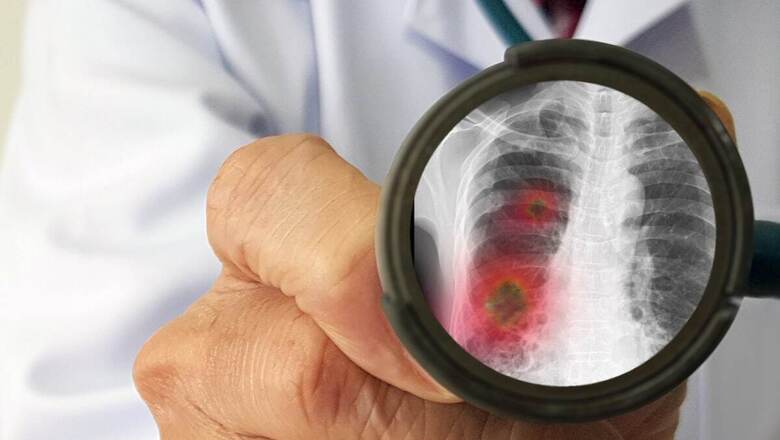
views
As we all know now that COVID is disease of lung caused by a virus name Novel Corona Virus (SARS COV 2 Virus). First case notified by World Health Organization (WHO) on 31st December 2019 hence the name COVID 19 was given. It enters through mouth and nose through droplets containing the virus. Through the wind pipe it reaches to lung. In simple words I will try to clarify about symptoms and its severity in this article.
What is lung?
Humans have a pair of lung attached to outer atmosphere through a wind pipe which opens out through mouth and nose. The right lung is divided into three parts named upper, middle and lower lobe and the left lung is divided into two parts upper and lower lobe. Air in our surrounding containing around 20% of oxygen is inhaled into our lung by mouth and nose through a common wind pipe.
Lungs consist of numerous alveoli (like bunch of balloons) which get expands by filling of inhaled air and collapse after exhalation due to the emptying of air. Alveoli transfer the oxygen to the blood which supplies it to all cells of the body from head to toe. In return it extracts the bad gases like carbon di oxide from the cells and expel out to outer environment. This is called air exchange. All the cells, tissues, organs of our body need oxygen to survive.
What is pneumonia?
Pneumonia is a disease of lung which decreases its function to provide required oxygen to the blood. Infection of microbes like bacteria, virus, and fungi can cause it. Pneumonia can cause the alveoli to fill with fluid and no space left for air, hence the function of alveoli to supply oxygen to blood gets compromised.
How pneumonia happens?
These microbes multiply in the alveoli and fill it. Our immune system fights back to kill microbes, inflammation cause fluid and dead cells to build up in lungs leaving no space for air exchange leading to symptoms like cough and shortness of breath.
How is COVID Pneumonia different from other pneumonia?
It is difficult to distinguish pneumonia caused by corona virus to pneumonia caused by other viruses, bacteria or fungus on the basis of symptoms. Series of laboratory tests are required to find out the exact cause. In some research it has been found that Corona virus is capturing small areas of lungs. It then uses own immune cells to spread across the lung over a period of many days or even weeks. As the infection slowly moves across the lung, it leaves damage leads to fever, cough, breathlessness and damage to the kidneys, brain, heart and other organs in patients with COVID-19.
Are all the patients of COVID 19 suffer from Pneumonia?
No. Pneumonia is not a common presentation of COVID 19. People aged 60 years and over, and those with underlying medical problems like high blood pressure, heart and lung problems, diabetes, obesity or cancer, are at higher risk of developing serious illness. However, anyone can get sick with COVID-19 and become seriously ill at any age.
Among those who develop symptoms, most (about 80%) recover from the disease without needing hospital treatment. About 15% become seriously ill and require oxygen and 5% become critically ill and need intensive care like ventilator. So the chances of dying from corona are very less but due to stress and anxiety the oxygen demand increases many folds which lead to progression of symptoms. So, physical and mental rest is essential.
In how many days pneumonia gets resolved with proper treatment?
As compare to other pneumonia, COVID pneumonia takes more time to get resolved. May be weeks or months. Complete recovery sometimes takes 6 months in very few cases. In some cases it can cause permanent damage but rest of the lung take over the function of damaged region to maintain required oxygen saturation.
What to do for a better post covid recovery?
Continue follow up with your physician. Strict adherence to his advice. Practice prone position chest physiotherapy. Practice healthy life style and diet. Practice meditation and yoga for mental and physical wellbeing.
Read all the Latest News, Breaking News and Coronavirus News here. Follow us on Facebook, Twitter and Telegram.




















Comments
0 comment